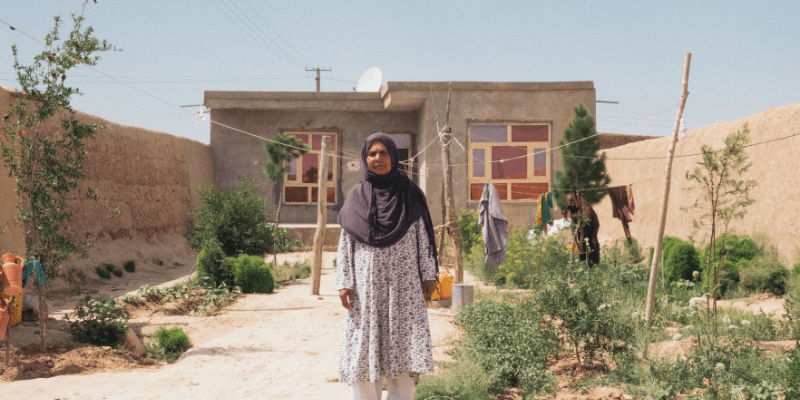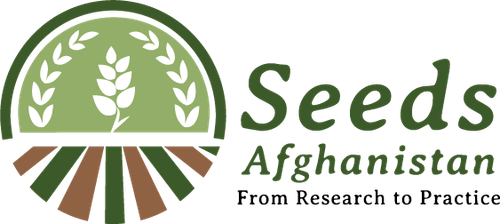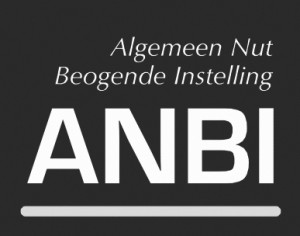Gardening for self-sufficiency
High Diversity Gardening: gardening with results
Village of Peace offers a combination of emergency aid and training. In this High Diversity Gardening (HDG) program, women learn how to grow their own food. They also follow interactive training courses on healthy nutrition and hygiene. This enables them to build towards their own food security in a sustainable way.
Self-reliance for single mothers
Village of Peace helps vulnerable communities in Afghanistan, with a focus on single women and their households. This project supports these groups in their fight against malnutrition by training and guiding them toward a sustainable and self-reliant life.
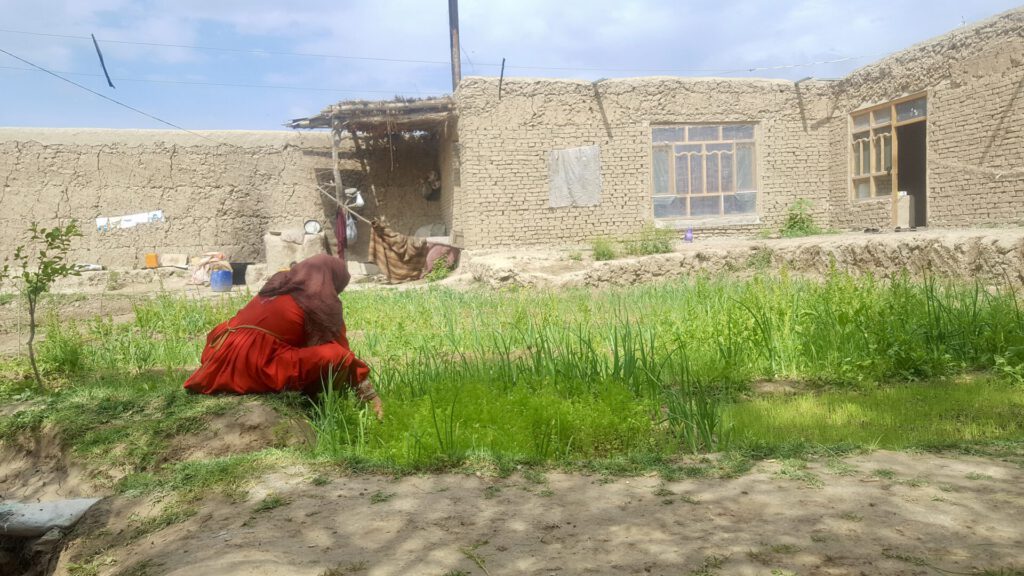
Food insecurity and malnutrition in Afghanistan
In Afghanistan, many families suffer from food insecurity and malnutrition, caused by persistent poverty and limited access to resources. Single women and their children are among the most vulnerable groups, and lack of adequate nutrition leads to serious health problems and undermines their future prospects.
From emergency aid to self-reliance
Village of Peace strives for sustainable solutions to structurally tackle malnutrition. Instead of providing temporary emergency aid, the project focuses on strengthening self-reliance, so that Afghans can independently build a healthy and stable future. This approach prevents dependency and is in line with international Sustainable Development Goals, namely SDGs 1, 2, 3, 5, 10, 11, and 17.
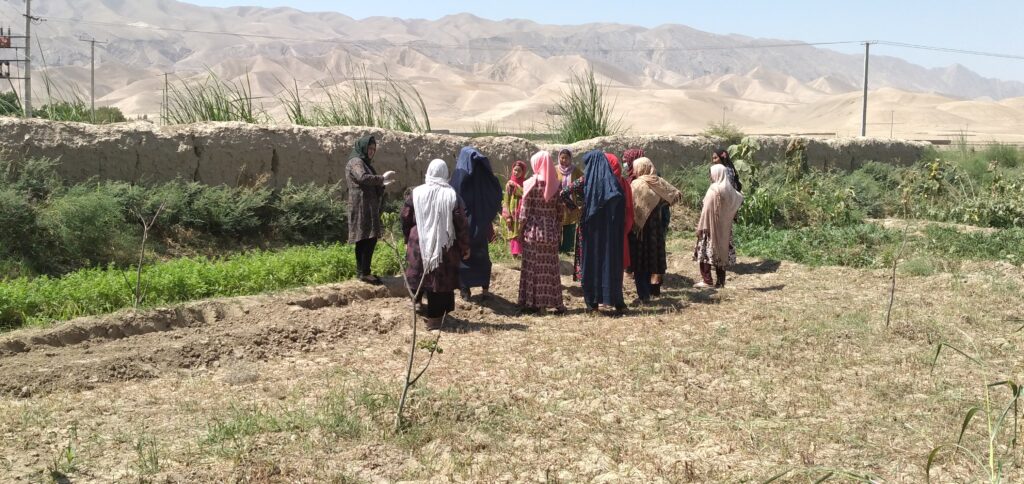
Distributing supplies
In addition to interactive training, the women receive a starter kit to get started with gardening.
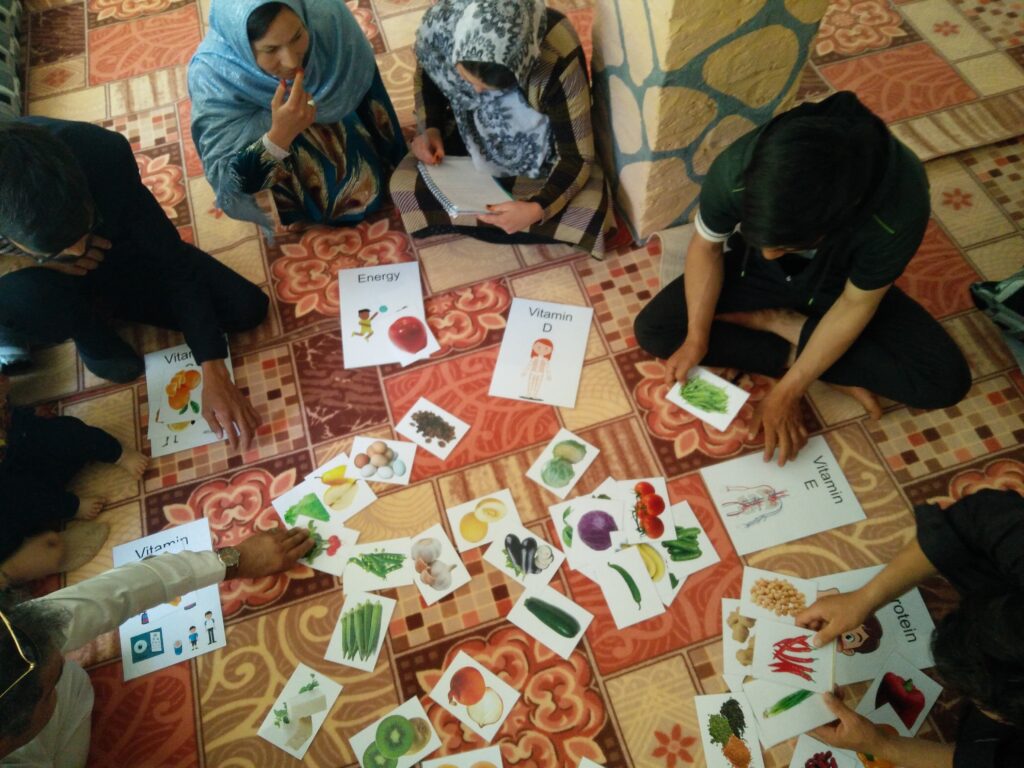
Interactive training courses
Many of the participants are illiterate. The interactive training course is arranged accordingly.
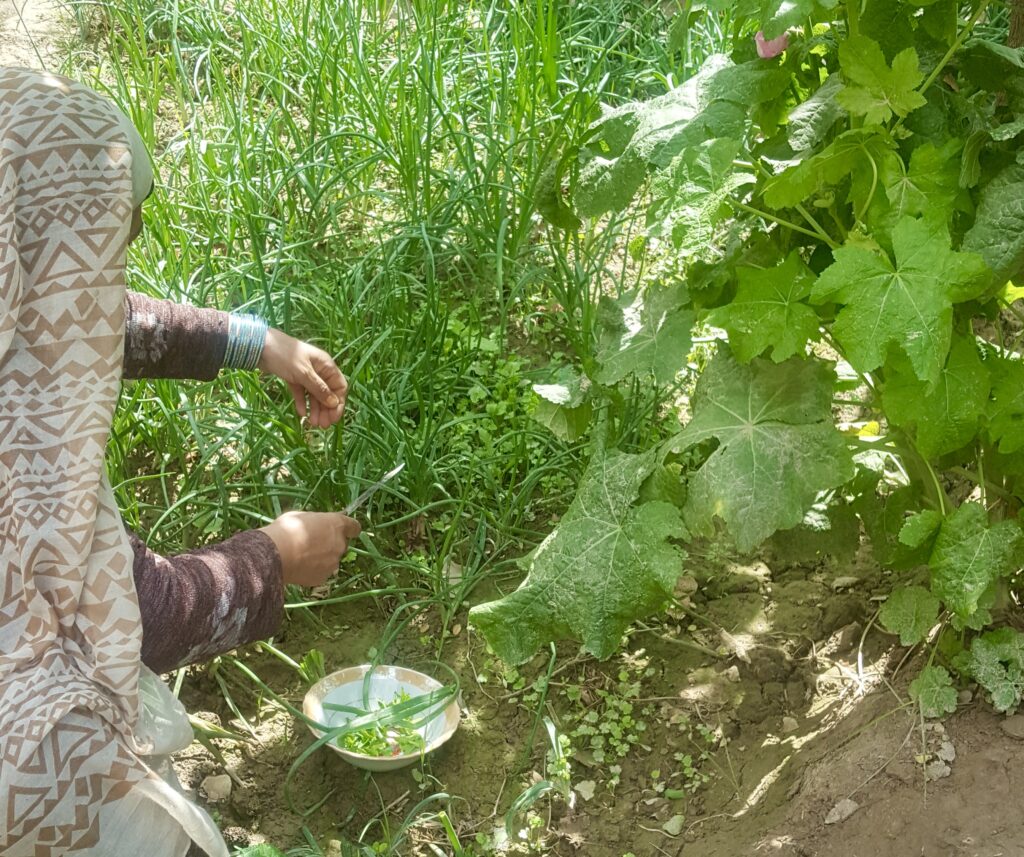
Home gardening
Many women already have a small plot of land near their homes, allowing them to immediately apply what they have learned.
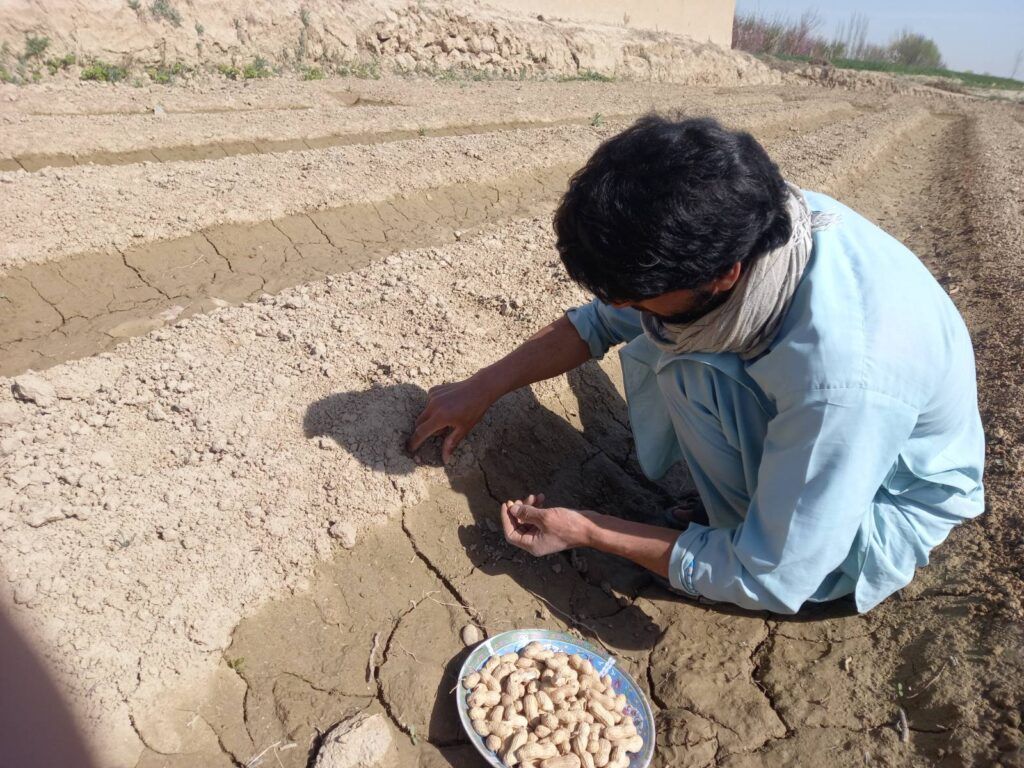
Abed, the eldest son in his family, says:
“After my father passed away, I could no longer go to school. Through Village of Peace, I received seeds, fertilizer and tools to work on our land. With the training I received, I can now provide my family with food and we can work towards a future without dependency.”
OUR APPROACH
Since 2014, Village of Peace has been training Afghans to rebuild their country. Our approach is holistic. Naturally, we provide food, medical care, and shelter where necessary, but the focus is on education, information, growing food, and finding a job. Our goal: a healthy and independent life for all single women and their children.
Scientifically based impact assessment
To ensure that our training courses and projects are adapted as effectively as possible to the local situation and target group, we work closely with Wageningen University & Research (WUR) and SEEDS Afghanistan. Using scientific research, they measure the effectiveness and impact of our programs and provide advice on possible improvements. This is how we work together to achieve a sustainable impact on food security and quality of life in Afghanistan.
Why Village of Peace?
This project in Afghanistan promotes long-term food security, health and economic stability, and aligns with international sustainable development goals. As a donor, you can make a direct impact with your support in Afghan lives and help break the cycle of poverty and malnutrition in one of the world’s most challenging regions.
“Give hope and help build a future where vulnerable Afghans can work towards self-reliance.”
From malnutrition to self-reliance
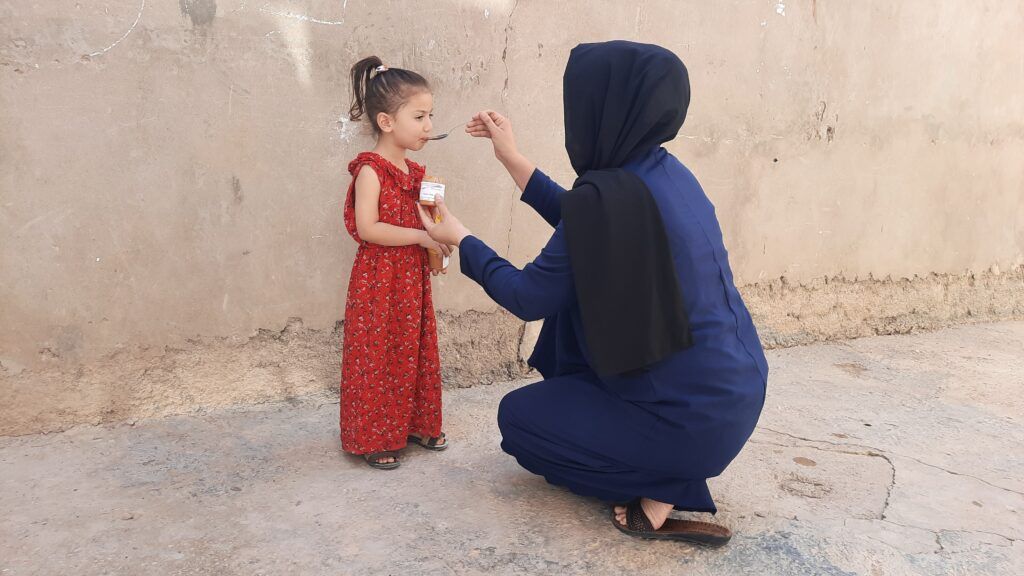
In Afghanistan, widows and orphans are at the bottom of society. It is a daily struggle for them to find food, resulting in malnutrition. We help these women to change their situation. Often, this means providing emergency aid first.
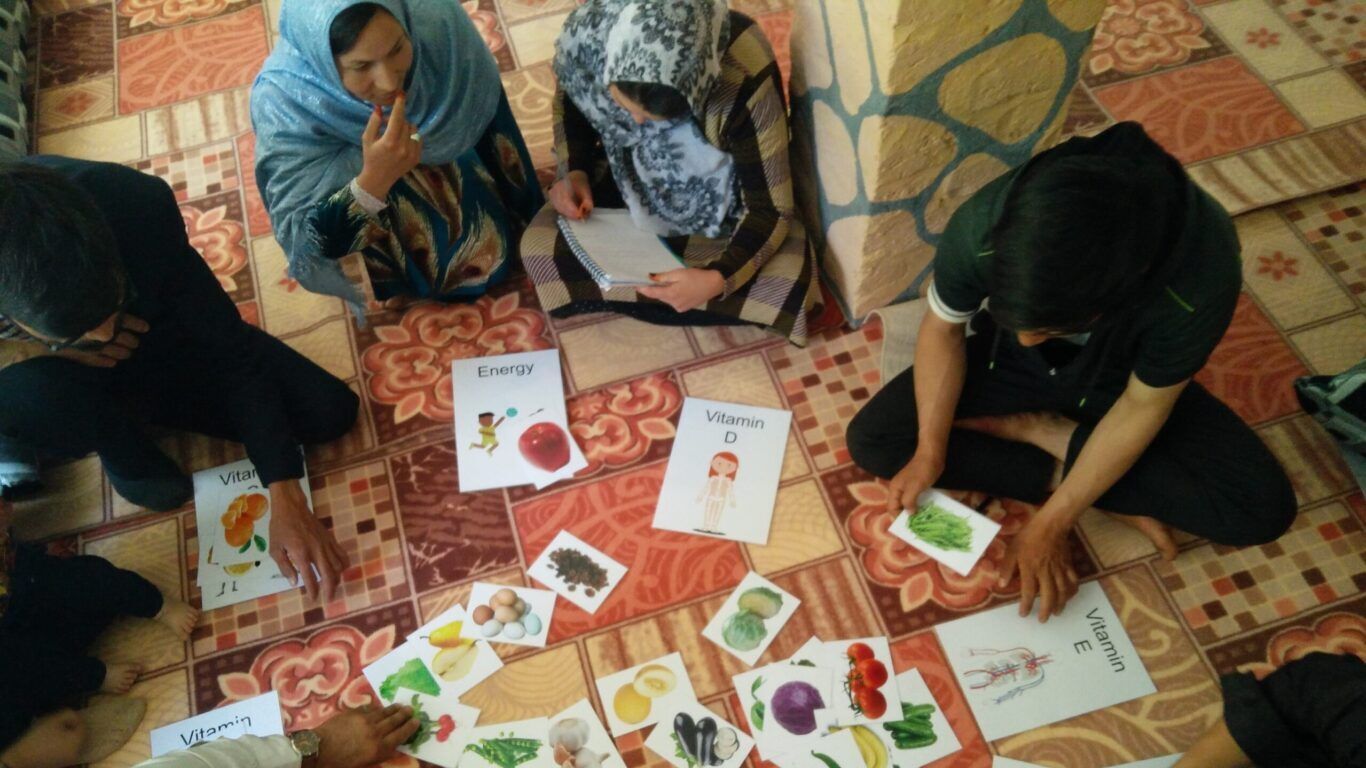
We then train them through practical education and help them build a food-secure existence.
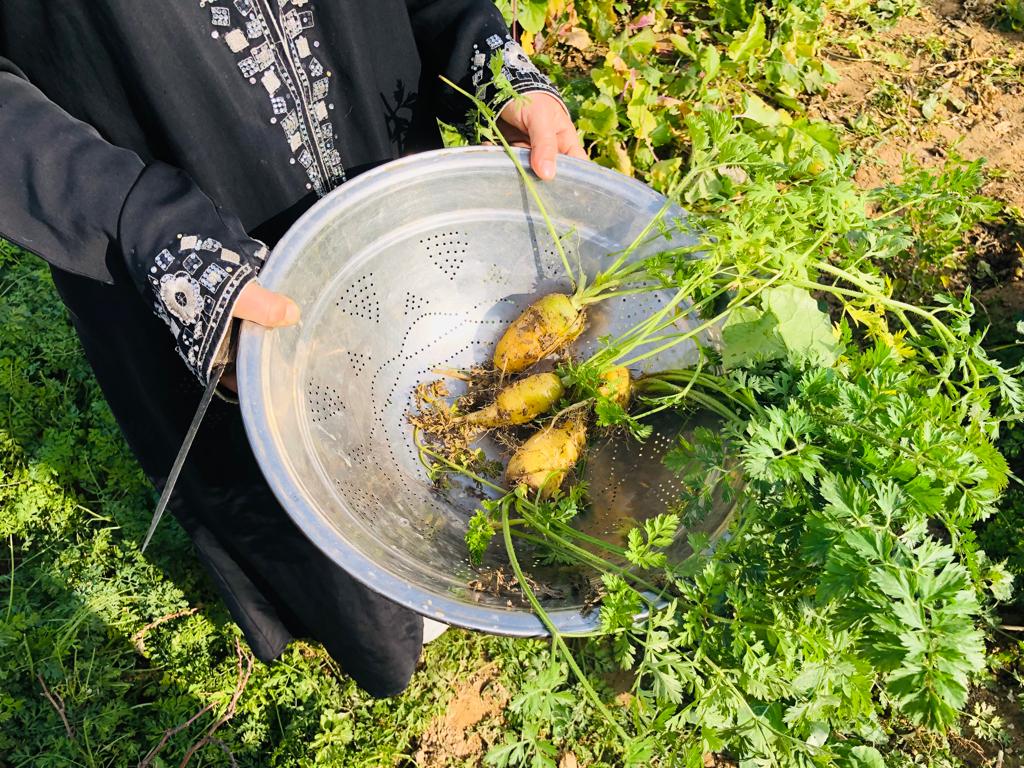
This enables them to work on their self-reliance and regain their place in Afghan society. Food security is the springboard to a healthy and independent life, not only for the widow and her children, but also for her immediate network. In this way, she ultimately makes a difference locally.


